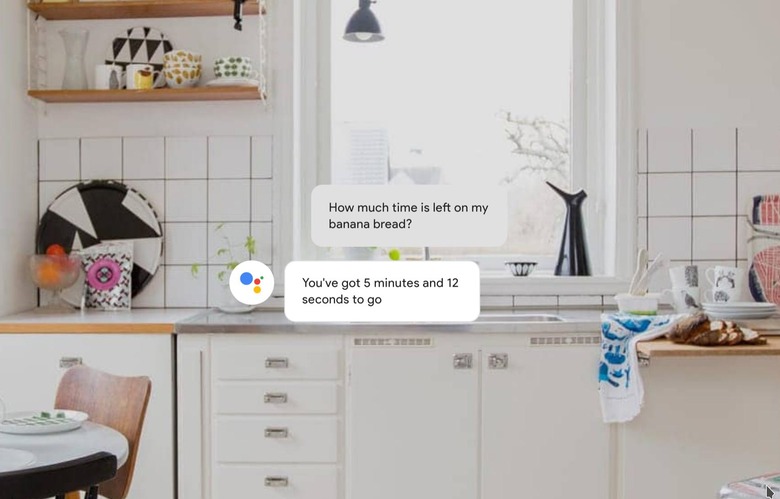Smart Assistants Need To Be More Proactive To Be Useful
You have an important meeting with a client at 9 a.m. but you got so engrossed in that novel you read at night that you overslept. Luckily, your smart assistant (let's call it "Bucksbee"), sounded a reminder an hour before your appointment. You frantically prepare, without giving your phone a second glance. You rush out the door to the nearest bus stop, only to be drenched in an unexpected (for you) downpour. You hop on a bus, soaking wet, but had enough time to try in the unexpected (for you) heavy traffic. You mentally compose a profound apology email and then whip out your phone, only to see the client sent an email hours earlier canceling the meeting for an emergency. We humans sometimes aren't smart, but our smart assistants are often not that much better.
Make no mistake, smart assistants like Alexa, Siri, Google Assistant, and even, say, Cortana, are smart. Who else can immediately tell you the distance from the Earth to the moon or your six degrees of connection to Kevin Bacon. They're so smart that they can heat up (or cool down) your home, turn up the lights, and play The Imperial March just as you are about to come home. And all of that without even lifting a finger. Well, almost.
These smart assistants, however, are not that smart in the one area that matters the most: knowing what you need before you need it. In our admittedly contrived scenario earlier, Bucksbee should have been able to tell you to bring an umbrella today or to leave earlier because of traffic (some already do that). Or better yet, that you have no need to rush because your 9 a.m. date canceled. And it should have been able to do that the moment you wake up. Or even better, it should have desperately tried to wake you up much, much earlier. But you might need a robot dog for that.
The thing is, Google Assistant, Alexa, Siri, and the rest of the gang are only smart when you ask them to be. Most of the time, they're dumb, silent eavesdroppers. Yes, it can sometimes be creepy or even overbearing when they start nagging you all the time. Clippy, anyone? But part of being smart is just as much about knowing when to say something as it is to know what to say.

And it's not like these assistants don't have the data or means to know when to do that. Phones and fitness trackers know when you just woke up so that you'd be able to hear important messages. They can pull up information from the Web at a moment's notice. And some of them can even scan your email (yes, that's you Google).
And, yes, there will most likely be privacy concerns attached to that one. Though, to be honest, many users have already given these company's overreaching access to their data anyway. They're not the only game in town, mind you. There are open source, privacy-respecting alternatives, like Mycroft, for example. And maybe you don't even need to go that far. Have an appointment in your (visible) calendar with Mr. Bigshot Investor? A smart assistant should be able to see incoming notifications coming from him and just tell you when you wake up that you may have something urgent to read.
Smart assistants are marketed to make our lives more convenient, just like having a personal secretary. A personal secretary that does nothing until you tell him to. Right now, they're pretty much just demos of fancy technologies like machine learning and neural networks. Fancy toys from the big boys and girls rather than tools that help us worry about the more important things in life rather than wondering if we should have brought an umbrella when we're already dripping.
